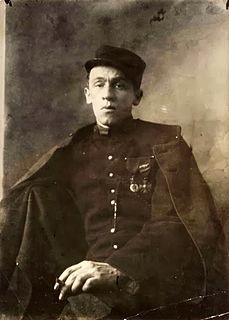A Quote by Paul G. Tremblay
I'm a daydreamer - a purposeful one when I'm writing fiction.
Quote Topics
Related Quotes
Writing fiction is very different to writing non-fiction. I love writing novels, but on history books, like my biographies of Stalin or Catherine the Great or Jerusalem, I spend endless hours doing vast amounts of research. But it ends up being based on the same principle as all writing about people: and that is curiosity!
The process of writing fiction is totally unconscious. It comes from what you are learning, as you live, from within. For me, all writing is a process of discovery. We are looking for the meaning of life. No matter where you are, there are conflicts and dramas everywhere. It is the process of what it means to be a human being; how you react and are reacted upon, these inward and outer pressures. If you are writing with a direct cause in mind, you are writing propaganda. It's fatal for a fiction writer.
Writing fiction is not a profession that leaves one well-disposed toward reading fiction. One starts out loving books and stories, and then one becomes jaded and increasingly hard to please. I read less and less fiction these days, finding the buzz and the joy I used to get from fiction in ever stranger works of non-fiction, or poetry.
I don't want to write poems that are just really clear about how I'm aware of all the traps involved in writing poetry; I don't want to write fiction that's about the irresponsibility of writing fiction and I've thrown out a lot of writing that I think was ultimately tainted by that kind of self-awareness.
In a sense, journalism can be both helpful and detrimental to a writer of fiction because the kind of writing you need to do as a journalist is so different. It has to be clear, unambiguous, concise, and as a writer often you are trying to do things that are more ambiguous. I find that writing fiction is often an antidote to reading and writing too much journalism.
A couple of pieces of advice for the kids who are serious about writing are: first of all, to read everything you can get your hands on so you can become familiar with different forms of writing: fiction, non-fiction, poetry, journalism. That's very important. And also keep a journal. Not so much, because it's good writing practice. Although it is, but more because it's a wonderful source of story starters.
When I taught at the University of Houston in the Creative Writing program we required the poets to take workshops in fiction writing and we required the fiction writers to take workshops in poetry. And the reason for that is because the fiction writers seemed to need to learn how to pay greater attention to language itself, to the way that language works.


































